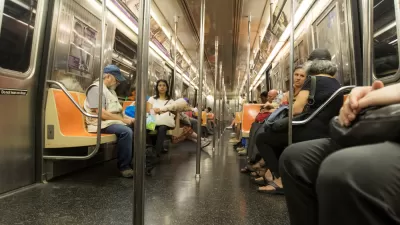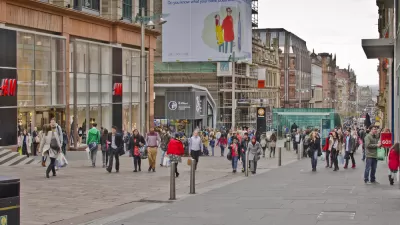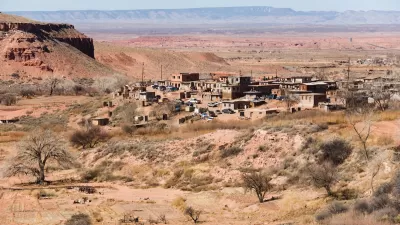The Federal Communications Commission (FCC) would like to create free public 'super' WiFi networks across the nation, reports Cecilia Kang. The $178 billion wireless industry is fighting the initiative.
A proposal by the FCC to require local television stations and other broadcasters to "sell a chunk of airwaves to the government" for use as public WiFi networks could be a boon to cities, the poor, and technological innovation. The network, which consumers could use "to make calls or surf the Internet without paying a cellphone bill every month," is being fought by companies such as AT&T, T-Mobile, Verizon Wireless, Intel and Qualcomm.
"The airwaves that FCC officials want to hand over to the public would be much more powerful than existing WiFi networks that have become common in households," explains Kang. "They could penetrate thick concrete walls and travel over hills and around trees. If all goes as planned, free access to the Web would be available in just about every metropolitan area and in many rural areas."
According to Kang, the wireless industry lobbying effort in opposition to the plan "has been countered by an equally intense campaign from Google, Microsoft and other tech giants who say a free-for-all WiFi service would spark an explosion of innovations and devices that would benefit most Americans, especially the poor."
FULL STORY: Tech, telecom giants take sides as FCC proposes large public WiFi networks

Planetizen Federal Action Tracker
A weekly monitor of how Trump’s orders and actions are impacting planners and planning in America.

Maui's Vacation Rental Debate Turns Ugly
Verbal attacks, misinformation campaigns and fistfights plague a high-stakes debate to convert thousands of vacation rentals into long-term housing.

Restaurant Patios Were a Pandemic Win — Why Were They so Hard to Keep?
Social distancing requirements and changes in travel patterns prompted cities to pilot new uses for street and sidewalk space. Then it got complicated.

In California Battle of Housing vs. Environment, Housing Just Won
A new state law significantly limits the power of CEQA, an environmental review law that served as a powerful tool for blocking new development.

Boulder Eliminates Parking Minimums Citywide
Officials estimate the cost of building a single underground parking space at up to $100,000.

Orange County, Florida Adopts Largest US “Sprawl Repair” Code
The ‘Orange Code’ seeks to rectify decades of sprawl-inducing, car-oriented development.
Urban Design for Planners 1: Software Tools
This six-course series explores essential urban design concepts using open source software and equips planners with the tools they need to participate fully in the urban design process.
Planning for Universal Design
Learn the tools for implementing Universal Design in planning regulations.
Heyer Gruel & Associates PA
JM Goldson LLC
Custer County Colorado
City of Camden Redevelopment Agency
City of Astoria
Transportation Research & Education Center (TREC) at Portland State University
Jefferson Parish Government
Camden Redevelopment Agency
City of Claremont





























